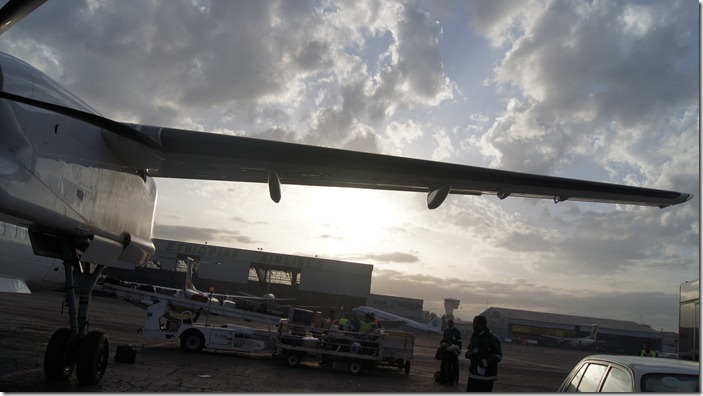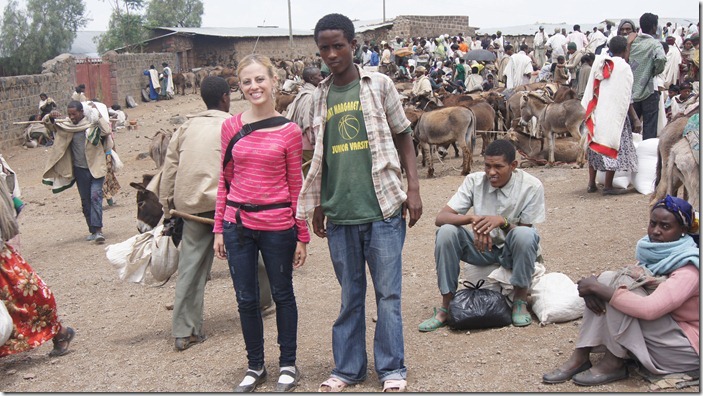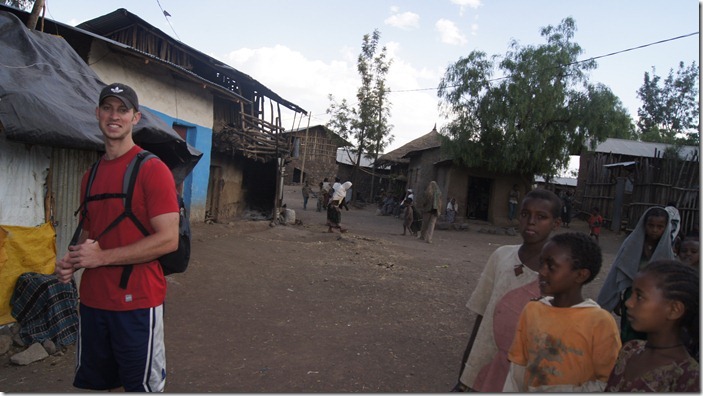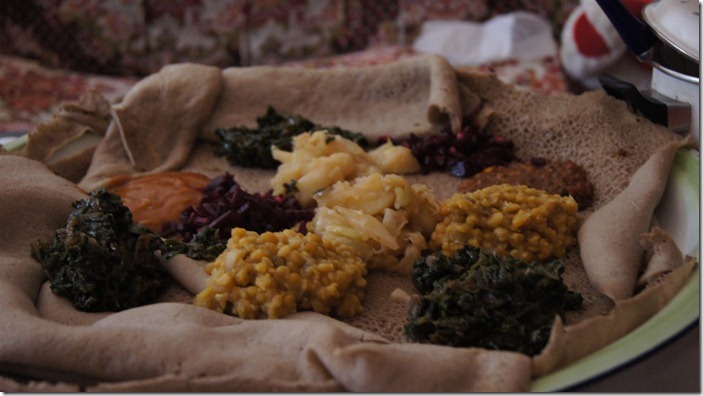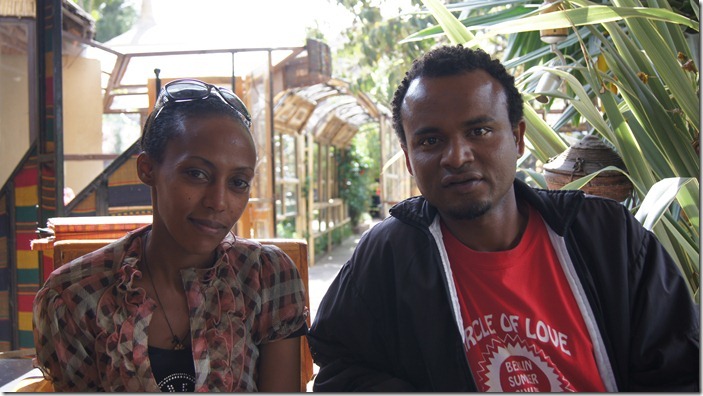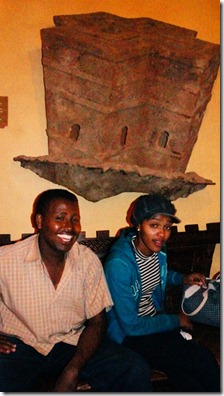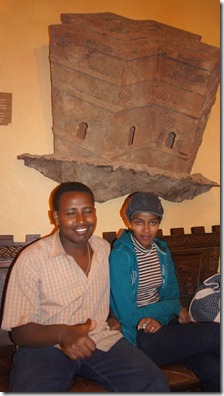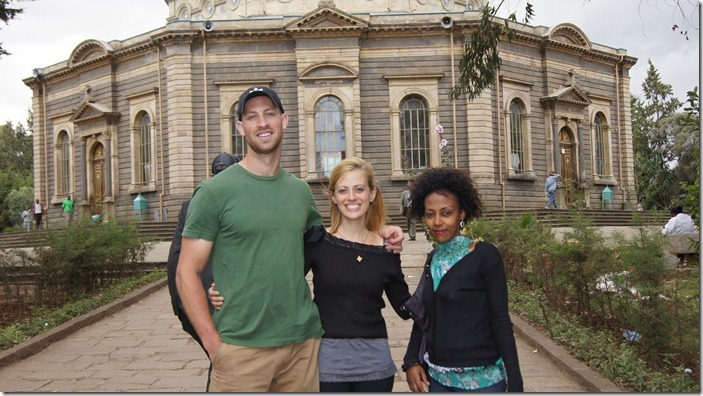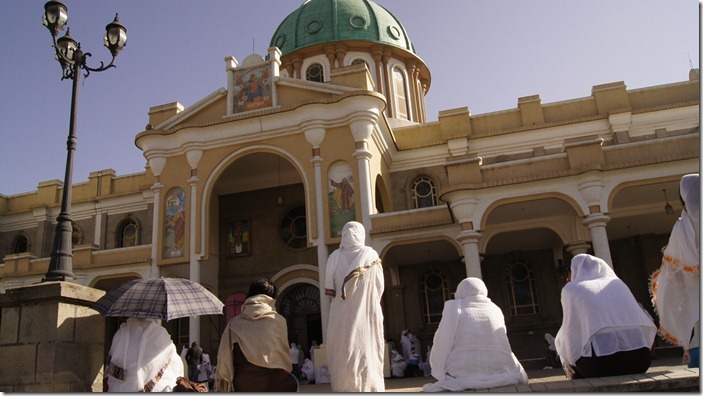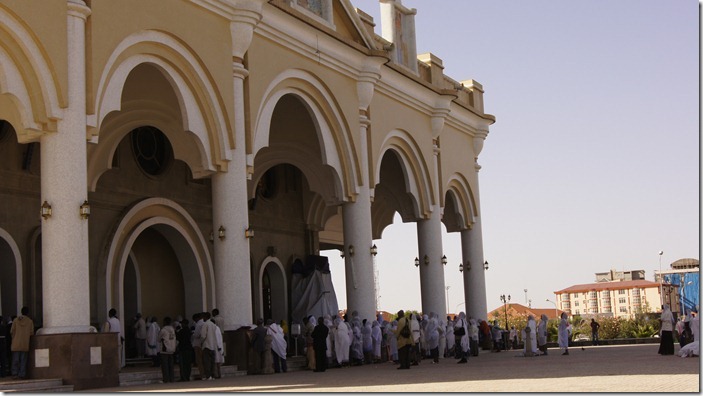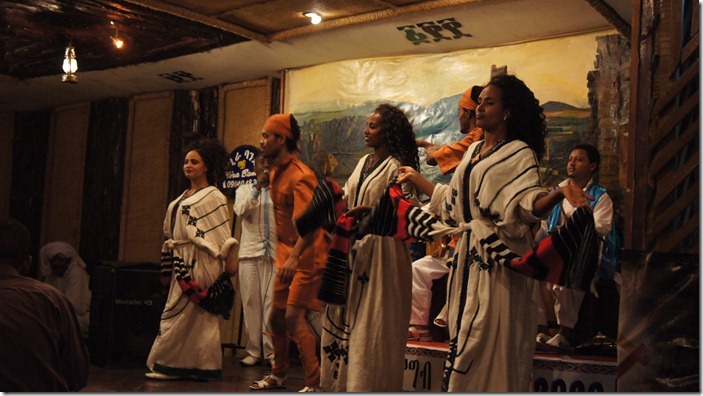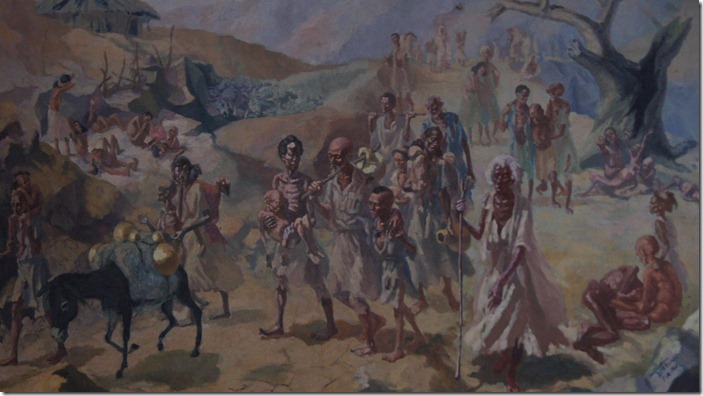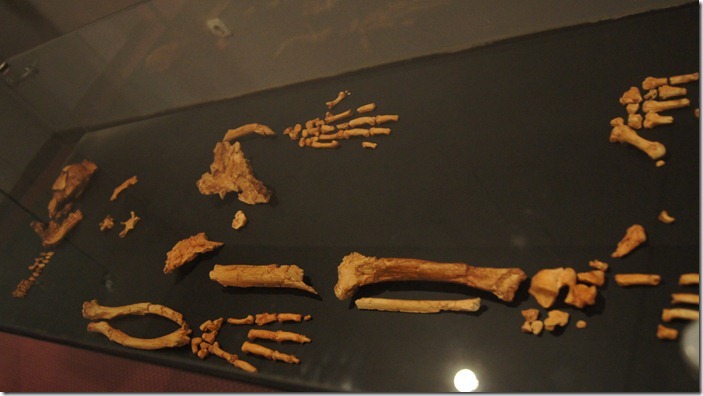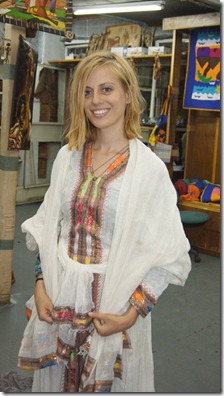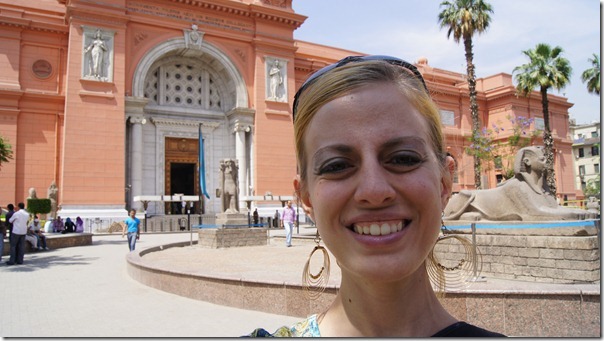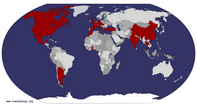Here’s the story of our whitewater rafting in Uganda:
Jinja, Uganda is supposed to have the best white water rafting in the world.
I wavered at whether or not I wanted to do five grade rapids though:
But a friend I made said I had to do it, so…we did.
We got picked up outside of Nakumatt Oasis in a huge van that smelled like sweat which had “Nile River Explorers” painted on it.
We drove for a bumpy hour. I expected we would pick up others, but we never did.
Turns out Jacob and I were the only ones rafting the Nile that day.
This meant no photographers and no one to join us for the big barbecue bash that celebrates a safe ride down the river.
It could have been disappointing, but instead I chose to see it as romantic. Just Jacob and I on a private expedition for two 
The company is Australian-owned, but the guides were Ugandan.
Our main guide was sarcastic, tough, and had been rafting the Nile for 11 years. Tony, his grinning counterpart, made a perfect sidekick. Each rapid that advanced, our guide would say: “Tony, please don’t scream like a girl this time. You need to stop scaring the clients” or “Tony, don’t hide in the raft” and cute, grinning Tony would giggle and say, “Okay.”
We had some training. We learned no one had died, but several people had broken bones. We learned what to do if we got caught under the raft, what to do if we got taken away by the current, and how to ride the kayak if he came to rescue us. How to catch the rope if we had to get pulled in (not wrapped around the fingers—it could break them). How to float so we would be less likely to get tore up by a rock, legs in the air. We removed rings and watches because the water usually swallowed them up.
All of the information was kind of overwhelming, and I just knew I wouldn’t be able to remember it all in an emergency. Fortunately, we never had to use it.
I dressed in a tee shirt and long spandex-style pants that turned out to be perfect for swimming—they protected from the sun but didn’t get baggy with water. We also had helmets and life jackets. The water was so pleasant—not cold at all. There were crocodiles, which we were told were vegetarian. Because white people hunt them, they get out quick when they see white people. Apparently they like to eat black people though. Which is why they didn’t like to swim in the water. Our guides said.
I wasn’t strong enough to pull myself into the raft when we practiced falling out, so it was agreed Jacob would pull me in. I’ve been working on my upper body strength, too. Darn.
We started going down the river, and we could already hear the rapids before we could see them. My heart was beating faster and I was praying and saying, “What did we get ourselves into?” We approached the water as our guide began issuing commands. “Paddle harder!” And then, “Get down!” That was the signal to hold onto the rope and hide your head. The raft whisked around large boulders and belched us out onto smooth water. We hadn’t tipped over. It was adrenaline-pumping fun.
The next one the wave was so humongous there was no doubt we were going to topple. It was like an ocean wave. We watched it break over us like the monster it was. Soon I found myself under the raft, but I saw light, headed towards it, and only swallowed a little of the famous Nile. Jacob, however, was stuck under the raft for a while, and he came up after gulping water for a bit. That one was our worst one. We went on 8 major rapids. Others had been closed due to the dam that was recently built. There’s talk that these rapids won’t be around forever, so now is the time to go.
After that there were long stretches of nothing, where we could just sit back and observe the interesting birds along the river. Lunch was fresh pineapple, chopped with a large knife right in front of us. I never knew how tasty fresh pineapple could be. Jacob and Tony skipped chunks of it across the river. Jacob squeezed the pineapple into his mouth and all over his face, saying he could do that here because he could just jump into the river afterwards. (Jacob hates to get his hands dirty.) He backflipped off the raft, knocked us all off at one point or another, and was just having such a great time that I was laughing just watching him. We could just swim and play in the flat water. Jacob took me and kissed me in the middle of the Nile, an awkward kiss with two life jackets blocking it, but my favorite part of the day nonetheless.
Then the roar of the rapids could be heard, and we’d prepare again. I’d be just as nervous every time. I was only nervous about breaking a bone. That would have been a nuisance, what with our having plane tickets to fly to Ethiopia the next day.
On a couple of the rapids, he had us lean on one side as we rode a wave sideways to keep from toppling. Bump—bump—bump, we sat on the top of that wave like a rickety roller coaster ride.
I’ll tell you there’s nothing like the feeling of being on top of a wave, in a raft, screaming and laughing, before sliding down it and starting it over again, out of control, at the mercy of the water.
We finished and I was a bit relieved and proud at the same time.
I discovered white water rafting grade 5 rapids was like everything I’m scared of: I research it, read blogs about it, overanalyze it, weigh the risks, consider backing out until the last second, and then take a leap of faith and do it.
Then I discover it’s never as bad as my imagination made it out to be.
Despite slathering on sunscreen, we both got rocked. My lower lip puffed up to the size of an African’s. Jacob’s rosy cheeks got even rosier.
Jacob’s quote: “This is my favorite activity in all of Africa.”

Since we didn’t have our camera with us that day, here is a picture of Jacob on a different day in front of another part of the Nile.

